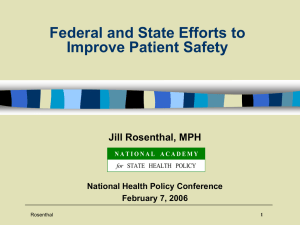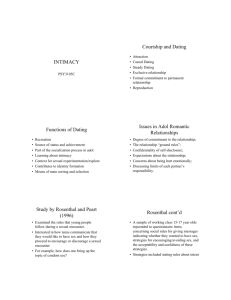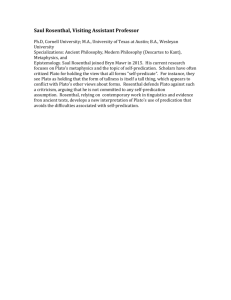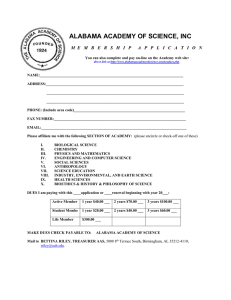Medical Errors and Federal and State Efforts to Improve Patient Safety
advertisement
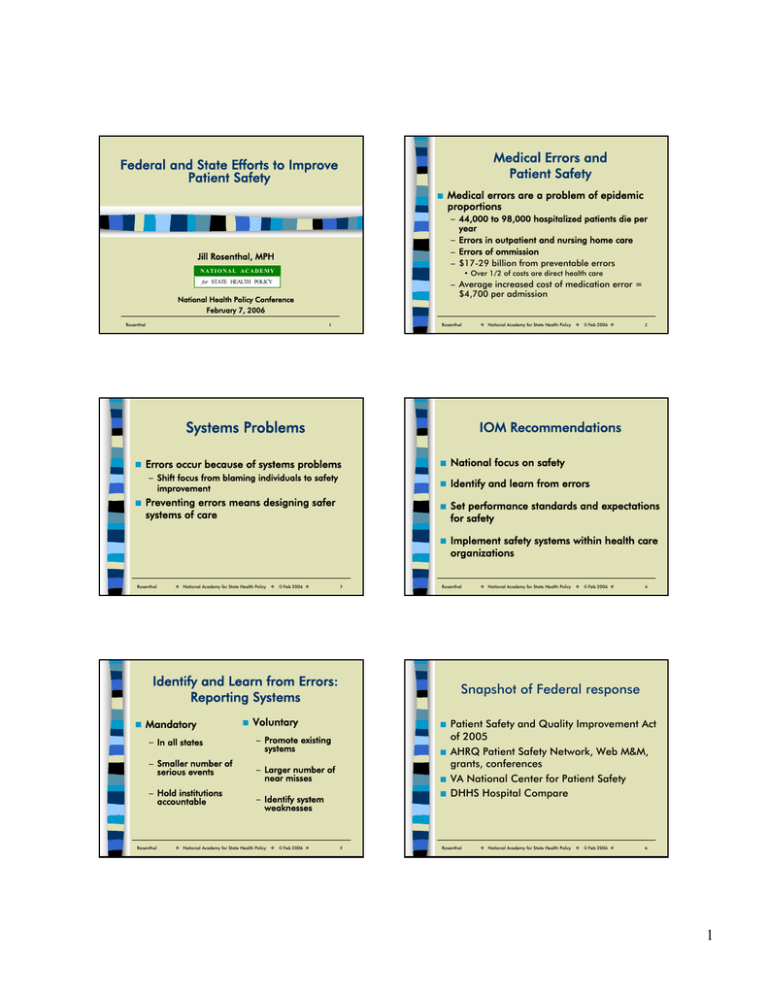
Medical Errors and Patient Safety Federal and State Efforts to Improve Patient Safety Q Medical errors are a problem of epidemic proportions – 44,000 to 98,000 hospitalized patients die per year – Errors in outpatient and nursing home care – Errors of ommission – $17-29 billion from preventable errors Jill Rosenthal, MPH • Over 1/2 of costs are direct health care NATI ONAL ACADE MY – Average increased cost of medication error = $4,700 per admission for STATE HEALTH POLICY National Health Policy Conference February 7, 2006 Rosenthal Rosenthal 1 Systems Problems Q Q © Feb 2006 Errors occur because of systems problems Q National focus on safety – Shift focus from blaming individuals to safety improvement Q Identify and learn from errors Preventing errors means designing safer systems of care Rosenthal National Academy for State Health Policy © Feb 2006 Q 3 – In all states – Smaller number of serious events – Hold institutions accountable Rosenthal Q Q – Promote existing systems Q – Larger number of near misses Q Q – Identify system weaknesses © Feb 2006 Implement safety systems within health care organizations National Academy for State Health Policy © Feb 2006 4 Snapshot of Federal response Voluntary National Academy for State Health Policy Set performance standards and expectations for safety Rosenthal Identify and Learn from Errors: Reporting Systems Mandatory 2 IOM Recommendations Q Q National Academy for State Health Policy 5 Patient Safety and Quality Improvement Act of 2005 AHRQ Patient Safety Network, Web M&M, grants, conferences VA National Center for Patient Safety DHHS Hospital Compare Rosenthal National Academy for State Health Policy © Feb 2006 6 1 State Reporting Systems Snapshot of state responses Q Q Q Q Q Reporting systems and other regulatory approaches Patient safety centers Patient safety coalitions Purchasing for safety Rosenthal National Academy for State Health Policy © Feb 2006 Q 25 states have authorized adverse event reporting programs (Dec 2005) Accountability – Identification of system weaknesses and assurance of corrective actions Q Facility education – Patient safety alerts – Identification of trends and best practices – Web-based facility comparisons 7 Rosenthal Reporting System Improvement Q Q Maximizing the Use of State Adverse Event Data to Improve Patient Safety – Data coming out is only as good as data going in – Anecdotal vs. epidemiological analysis – Identification of tools, strategies, and shared learning for system improvement NASHP patient safety toolbox for states: www.pstoolbox.org National Academy for State Health Policy © Feb 2006 8 NASHP resources Q NASHP website: www.nashp.org – patient safety toolbox for states – adverse event reporting laws – NASHP patient safety news briefs and publications – state resources on patient safety Supported by The Commonwealth Fund Rosenthal National Academy for State Health Policy © Feb 2006 9 Rosenthal National Academy for State Health Policy © Feb 2006 10 Today’s speakers Q Q Q Vahe Kazandjian, Maryland Patient Safety Center Alan Rabinowitz, Pennsylvania Patient Safety Authority William Weeks, VA National Center for Patient Safety and VA Outcomes Group Rosenthal National Academy for State Health Policy © Feb 2006 11 2
